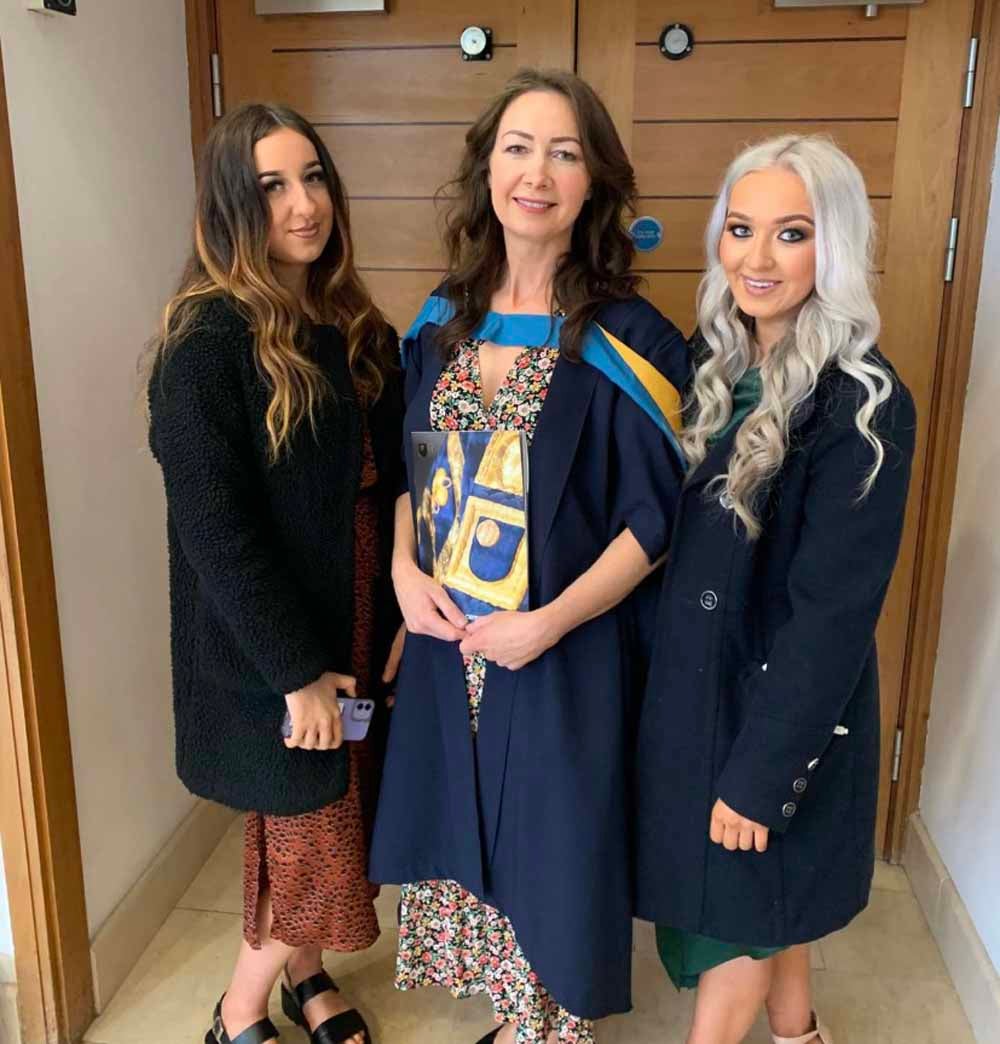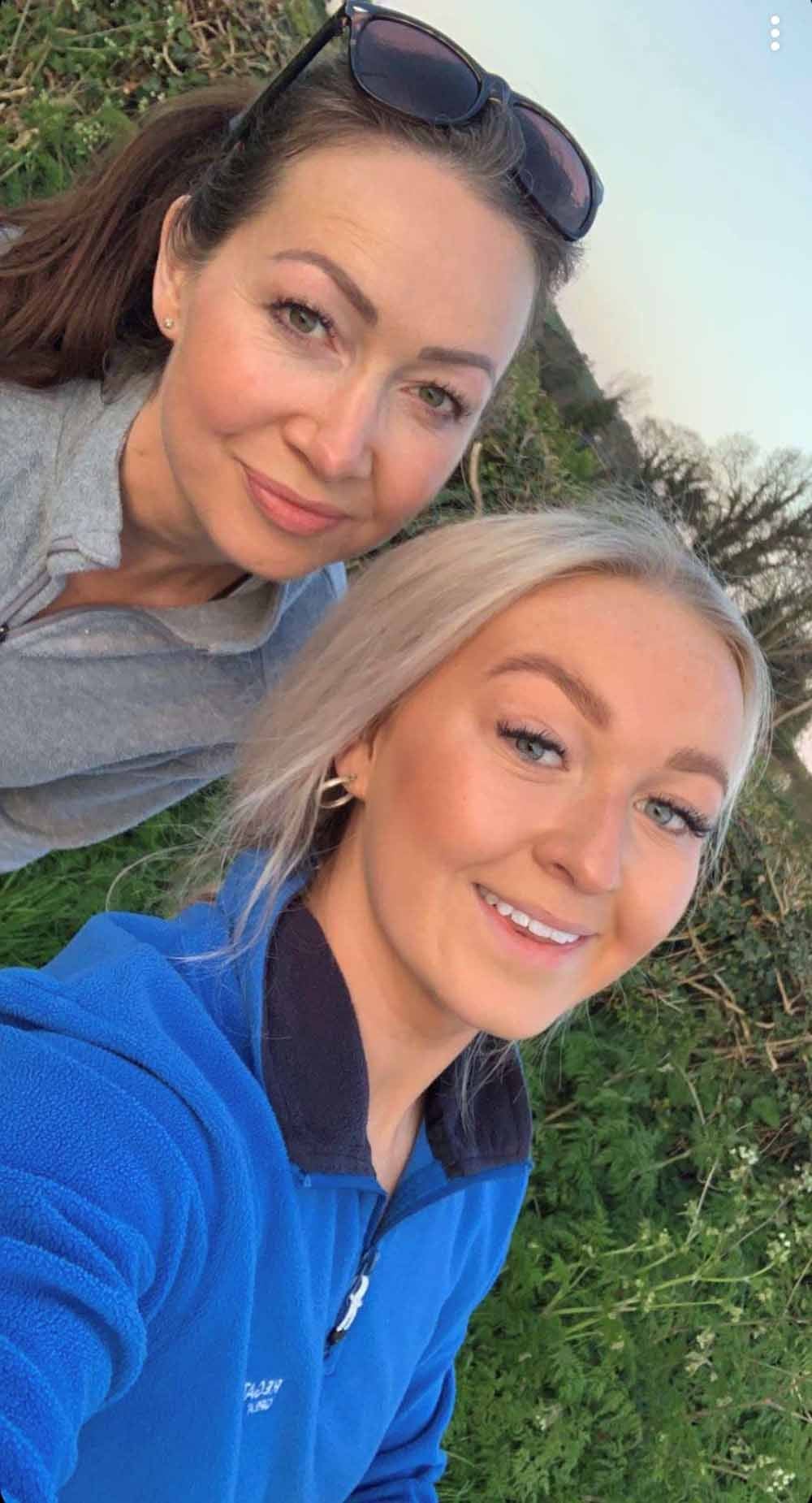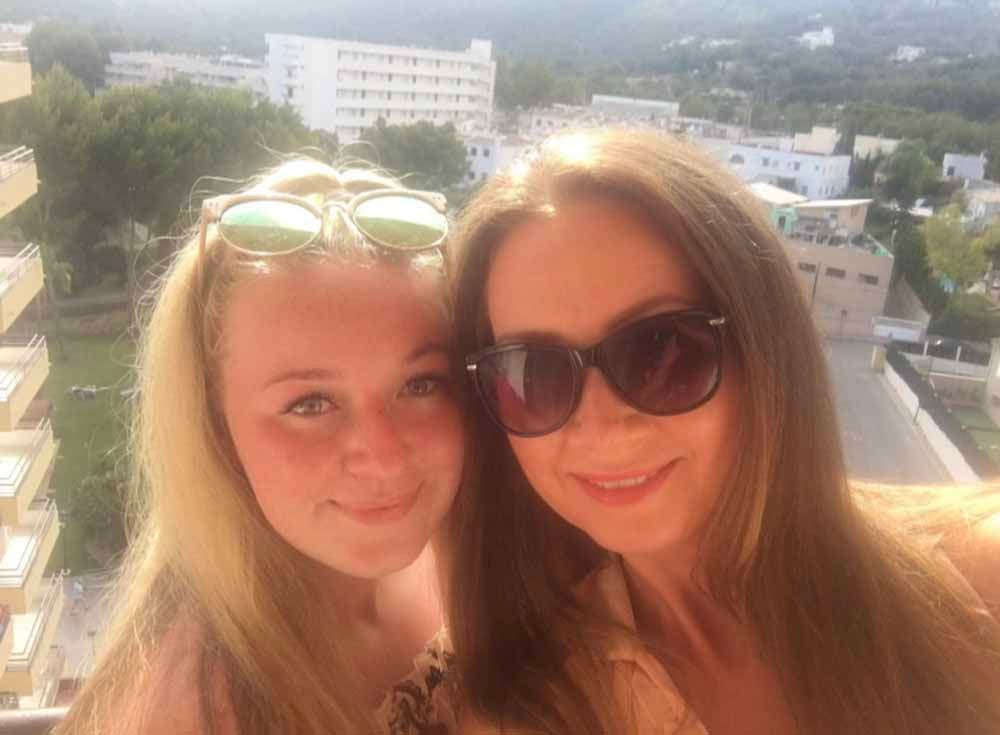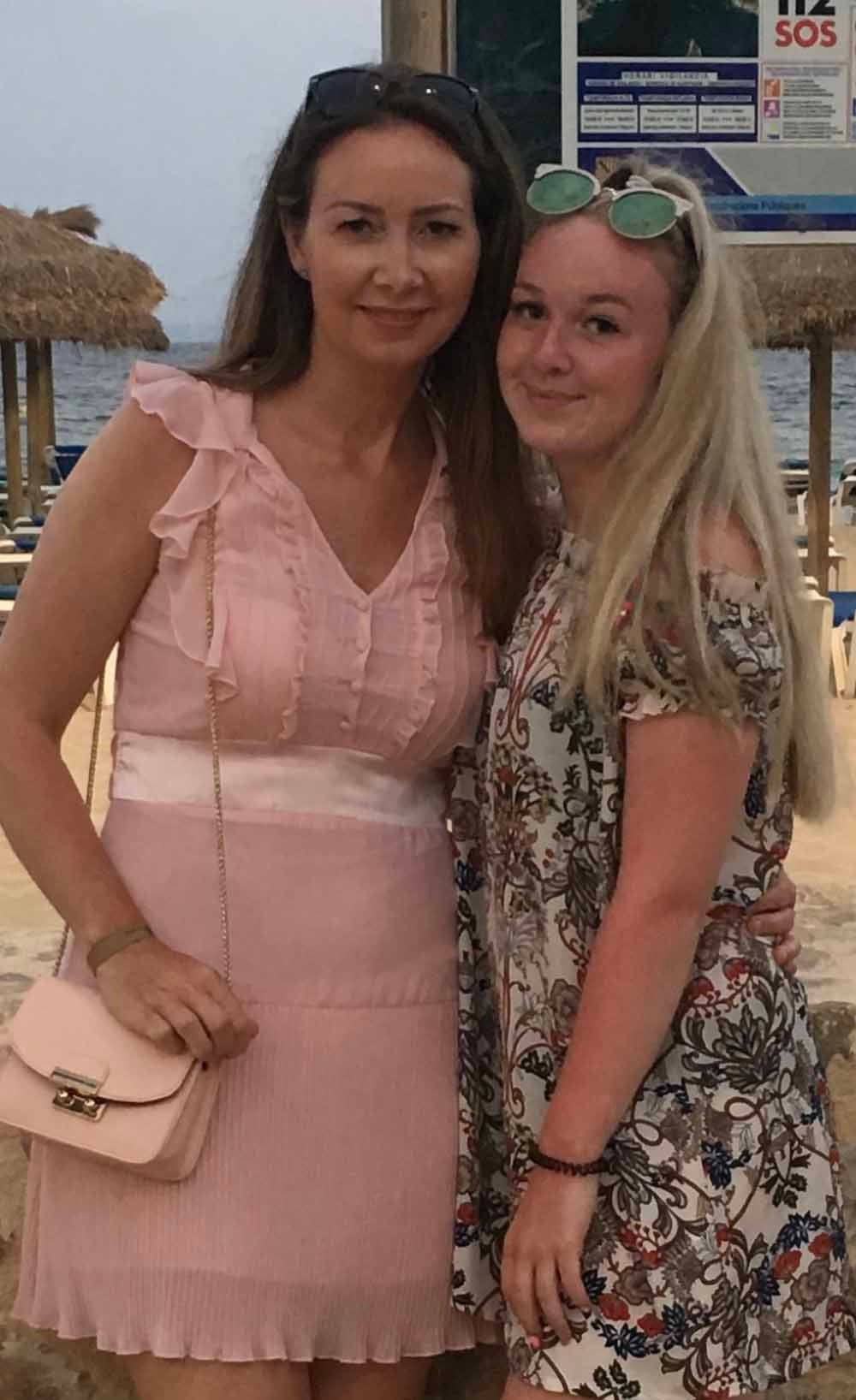
A mother whose life was saved by an incredible series of coincidences when her snoring was in fact a sign of cardiac arrest told how her teenage daughter who had fallen asleep in her bed performed CPR learned at school to keep her alive.
Clare Doyle, 43, who works at a dental surgery, praised her plucky girl Melissa, who was just 14 when she put her skills into action – inspiring her to follow in her daughter’s footsteps and become a community responder, using CPR to support emergency services.
And Clare, of Lisburn, Northern Ireland, also mother to Maddie, 15, is calling for more people to be taught cardiopulmonary resuscitation, saying: “If Melissa hadn’t known what to do the morning I went into cardiac arrest, I would have died.
“I had worked late the night before and we were supposed to be flying to Liverpool the next day, so she was just in my room chatting away and ended up going to sleep in my bed.”
Clare was in hospital for two weeks. (Collect/PA Real Life)
She added: “It was such a fluke but it ended up being lifesaving, because if she hadn’t spotted what was happening when she did, I probably wouldn’t be here now.”
Clare, who is single, told how she had a cardiac arrest on the morning of August 4, 2017, and made a noise which Melissa, now 19, mistook for snoring.
Maddie was asleep in her own bed at the time and Melissa, who was the only other person in the house, turned over in bed to see her mother’s face looked grey.
Clare said: “I was making a snoring-type noise, although I have no memory of it and it woke Melissa up.”

She added: “She looked at me and realised that I didn’t look right. I had gone grey and was unresponsive.
“She rang 999 and they guided her on what to do as the nearest ambulance was about 40 minutes away.
“I was deteriorating quickly and, by coincidence, Melissa had recently been taught CPR at school, so she did that while on the phone to 999.”
With Clare’s heart beating in unstable and irregular patterns, Melissa’s intervention was essential.

She said: “Melissa’s CPR maintained oxygen flowing to my brain and prevented me from suffering brain damage or worse, death, while we waited for help.”
When paramedics arrived, Clare was rushed to the Royal Victoria Hospital in Belfast where she was admitted to ICU.
The family faced more trauma, as Clare failed to wake-up for three days, with doctors warning them that her chances of survival were looking slim.
Then, on the Monday morning, she defied the odds by springing back to consciousness.
Everybody was like, ‘Hold on a second, we were preparing for your funeral, and you sit up talking like nothing has happened
She said: “I woke up and I felt like I’d had a really good sleep all weekend and felt really refreshed.
“I had no idea what had happened, so I was shocked to find myself in a hospital bed.
“The first thing I said was, ‘Where’s my make-up bag and who’s minding the dog?’
“Everybody was like, ‘Hold on a second, we were preparing for your funeral, and you sit up talking like nothing has happened!’”

Clare spent two weeks in hospital where she had scans in a bid to determine the cause of her cardiac arrest.
She said: “I have gone through a lot of tests and MRI scans, but my cardiologist hasn’t determined what caused the cardiac arrest. It was just one of those things.”
And, despite the traumatic event, she does not dwell on the prospect of it happening again.
She said: “I don’t really worry about it. I’m quite a positive person.”

She added: “I’ve just kind of carried on and the fact that I now have a little defibrillator which was fitted into my chest helps, because I know if this did happen again that it would shock my heart.
“It also regulates my heart rhythm so it’s like a back up that I have.”
Now, Clare is looking to the future and has taken her daughter’s lead by learning CPR and volunteering as a lifesaver in the community.
She said: “I’m so grateful that I’m still here to spend time with my girls.”

She added: “When Melissa was visiting me in hospital, the nurses kept telling her she needed to pursue a healthcare career, as she coped with it all so well.
“She’s still figuring out what she wants to do as a career, but she is considering working in the medical or care field.”
And she continued: “When I think about the fact that the survival rate for people who have a cardiac arrest outside of hospital is only one in 10, I just think about what I might have missed out on, like Melissa’s first day at university and my youngest choosing her subjects.
“I consider myself incredibly lucky I got a second chance at life, and it’s all thanks to Melissa, and the others who helped me.”
I consider myself incredibly lucky I got a second chance at life, and it’s all thanks to Melissa, and the others who helped me
Clare is now supporting the Resuscitation Council UK’s Restart a Heart campaign, which teaches adults and children CPR and defibrillator awareness throughout the year, culminating in a worldwide training day led by ambulance services across the UK on October 16.
She said: “Only around one in three people know how to perform CPR, which is a shocking statistic, so I would urge everyone to learn, because you just never know when you might need it.
“Melissa would never have thought she’d need it for me.
“When she told me she’d learned CPR in school I was so pleased, because if children are taught that skill young enough then they grow up with it and have the confidence to use it.”
- Cardiopulmonary resuscitation (CPR) can be used to try to restart someone's heart if it has stopped.
- CPR should only be used in an emergency situation if someone is unconscious and not breathing.
- People without CPR training should stick to hands-only chest compressions, the NHS says.
- To carry out a chest compression:
- Place the heel of your hand on the breastbone at the centre of the person’s chest. Place your other hand on top of your first hand and interlock your fingers.
- Position yourself with your shoulders above your hands.
- Using your body weight (not just your arms), press straight down by 5-6cm (2-2.5 inches) on their chest.
- Keeping your hands on their chest, release the compression and allow the chest to return to its original position.
- Repeat these compressions at a rate of 100 to 120 times per minute until an ambulance arrives or you become exhausted.
Clare has also joined the Mid Down and Lisburn Community First Responders, who help with 999 emergencies, when the ambulance may not arrive in time to save a life and she is now trained to give CPR herself.
She said: “We do need more people to come onboard and be a responder, so come and join us and save lives.
“I am living proof of how important it is to learn CPR.”
The steps to doing CPR are simple and can be learned in 15 minutes by playing Resuscitation Council UK’s Lifesaver game at lifesaver.org.uk







